What can we expect from the G20 summit?
International correspondents talk about their countries’ views of the German G20 presidency and the G20 summit in Hamburg.

Araceli Viceconte: freelance journalist, Argentina
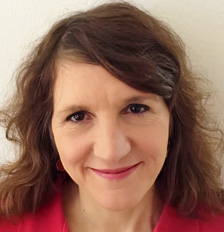 Argentina sees the G20 and its own presidency in 2018 as an
opportunity to present itself on the global and financial policy stage as a country with a fully revamped political and economic structure. President Mauricio Macri’s government is pinning its hopes for economic growth first and foremost on foreign investment, new trade agreements and an increasing volume of trade with all regions of the world. Argentina is determined to prioritise not only issues such
as education, gender equality and the fight against corruption, but above all investment in infrastructure and employment, and as such to follow the lead of the German G20 Presidency, which was characterised to a major extent by similar political goals. The country also hopes that this will generate impetus for fair bi-regional free trade initiatives – between the EU and Latin America, for example. Like Germany, Mauricio
Macri’s government wants to stand for inclusive and sustainable growth strategies in the G20.
Argentina sees the G20 and its own presidency in 2018 as an
opportunity to present itself on the global and financial policy stage as a country with a fully revamped political and economic structure. President Mauricio Macri’s government is pinning its hopes for economic growth first and foremost on foreign investment, new trade agreements and an increasing volume of trade with all regions of the world. Argentina is determined to prioritise not only issues such
as education, gender equality and the fight against corruption, but above all investment in infrastructure and employment, and as such to follow the lead of the German G20 Presidency, which was characterised to a major extent by similar political goals. The country also hopes that this will generate impetus for fair bi-regional free trade initiatives – between the EU and Latin America, for example. Like Germany, Mauricio
Macri’s government wants to stand for inclusive and sustainable growth strategies in the G20.
VITA
Araceli Viceconte reports from Germany for various Latin American media, including the Buenos Aires-based daily Clarín, Argentina’s most widely-read newspaper.
Shogo Akagawa: Nikkei, Japan
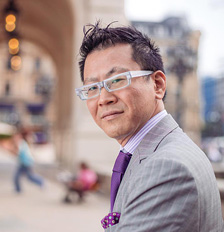 German Chancellor Angela Merkel is beating the drum for free trade, but who might
become Germany’s partner? Asia would be a good candidate. Asia, and above all Japan, finds itself in a similar situation to Germany vis-à-vis the United States of America. With its slogan “America first”, Donald Trump’s government has raised a question mark over key multilateral trade agreements – including for example the Trans-Pacific Partnership (TPP) and the Transatlantic Trade and Investment Partnership (TTIP) planned between the USA and the European Union. Asia and Germany must doggedly attempt to persuade the USA that free trade needs to be protected. Now it is the time for the G7 and the G20, which are meeting in Europe at the end of May and in early July, to demonstrate their raison d’être. If Germany is looking for key free trade partners outside Europe, the only countries that remain are Japan and Canada. In these uncertain times, the groups of leading
industrialised countries and emerging economies should serve as anchors, providing stability. The G20 summit in Hamburg will be a test of whether Germany can protect multilateralism.
German Chancellor Angela Merkel is beating the drum for free trade, but who might
become Germany’s partner? Asia would be a good candidate. Asia, and above all Japan, finds itself in a similar situation to Germany vis-à-vis the United States of America. With its slogan “America first”, Donald Trump’s government has raised a question mark over key multilateral trade agreements – including for example the Trans-Pacific Partnership (TPP) and the Transatlantic Trade and Investment Partnership (TTIP) planned between the USA and the European Union. Asia and Germany must doggedly attempt to persuade the USA that free trade needs to be protected. Now it is the time for the G7 and the G20, which are meeting in Europe at the end of May and in early July, to demonstrate their raison d’être. If Germany is looking for key free trade partners outside Europe, the only countries that remain are Japan and Canada. In these uncertain times, the groups of leading
industrialised countries and emerging economies should serve as anchors, providing stability. The G20 summit in Hamburg will be a test of whether Germany can protect multilateralism.
VITA
Shogo Akagawa is senior correspondent at Japan’s business newspaper Nihon Keizai Shimbun, known as Nikkei for short, reporting on Europe, the Middle East and Africa. The newspaper has a circulation of three million.
Jack Ewing: The New York Times, USA
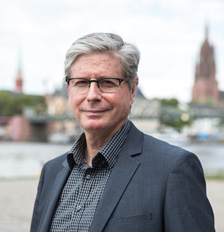 Americans will inevitably see the G20 summit through the prism of their new president, and what they wish from the meeting will depend on how they regard him. People who view President Trump positively will want him to rock the boat, to shake up the established order. They’ll cheer if he disparages the euro or otherwise challenges European leaders. If the president fires off a few provocative tweets from Hamburg, so much the better. Americans who don’t like Trump will be hoping just the opposite. They will be rooting that Chancellor Merkel and other European leaders can coax him back into the folds of the transatlantic partnership. When the G20 finance ministers and central bank presidents met in Baden-Baden
earlier this year, it was evident that Finance Minister Schäuble and representatives of other member countries were trying to gently indoctrinate the U.S. delegation in the complexities of international relations. The dispute over whether the closing communiqué should contain an endorsement of free trade showed that the effort was only partially successful. Taming the president’s impulses, will
be many orders of magnitude more difficult than it was for his more mild-mannered Treasury Secretary. But President Trump has shown that his positions can pivot sharply. Many Americans will be hoping that the coming summit will mark a further step in the evolution of the president from reality television star to something resembling a statesman.
Americans will inevitably see the G20 summit through the prism of their new president, and what they wish from the meeting will depend on how they regard him. People who view President Trump positively will want him to rock the boat, to shake up the established order. They’ll cheer if he disparages the euro or otherwise challenges European leaders. If the president fires off a few provocative tweets from Hamburg, so much the better. Americans who don’t like Trump will be hoping just the opposite. They will be rooting that Chancellor Merkel and other European leaders can coax him back into the folds of the transatlantic partnership. When the G20 finance ministers and central bank presidents met in Baden-Baden
earlier this year, it was evident that Finance Minister Schäuble and representatives of other member countries were trying to gently indoctrinate the U.S. delegation in the complexities of international relations. The dispute over whether the closing communiqué should contain an endorsement of free trade showed that the effort was only partially successful. Taming the president’s impulses, will
be many orders of magnitude more difficult than it was for his more mild-mannered Treasury Secretary. But President Trump has shown that his positions can pivot sharply. Many Americans will be hoping that the coming summit will mark a further step in the evolution of the president from reality television star to something resembling a statesman.
VITA
Jack Ewing is European business correspondent for the New York Times. He is based in Frankfurt am Main, Germany’s financial centre.
Hendrik Schott: Naspers, South Africa
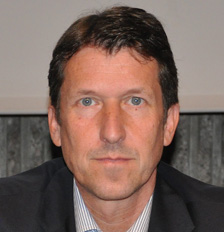 As sole representative from Africa among the G20 member states, South Africa has specific expectations and welcomes the participation of the African Union and NEPAD in Hamburg. Of outstanding importance is the topic “Partnership with Africa”. It is hoped that a closer cooperation will lead to more investments, especially in infrastructure
and energy projects. South Africa attracts immigrants and refugees from all over Africa. For this reason, the fight against the root causes of flight,
global health issues and the promotion of food security are of the utmost importance for South Africans. Regarding trade and climate policy,
South Africa takes a point of view which is not always compatible with
the objectives of other African countries.
As sole representative from Africa among the G20 member states, South Africa has specific expectations and welcomes the participation of the African Union and NEPAD in Hamburg. Of outstanding importance is the topic “Partnership with Africa”. It is hoped that a closer cooperation will lead to more investments, especially in infrastructure
and energy projects. South Africa attracts immigrants and refugees from all over Africa. For this reason, the fight against the root causes of flight,
global health issues and the promotion of food security are of the utmost importance for South Africans. Regarding trade and climate policy,
South Africa takes a point of view which is not always compatible with
the objectives of other African countries.
VITA
A correspondent for the South African media group Naspers, Dr Hendrik Schott reports from Germany and the European Union.
Cécile Calla: freelance journalist, France
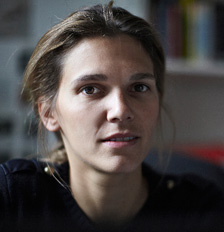 For newly-elected French president Emmanuel Macron, protecting the “French men and women who feel forgotten by this vast movement of the world” is the highest priority. Although open to it in principle, Macron wants globalisation to be fair and plans to continue taking a tough line, particularly on regulating the financial markets and combating corruption.
For newly-elected French president Emmanuel Macron, protecting the “French men and women who feel forgotten by this vast movement of the world” is the highest priority. Although open to it in principle, Macron wants globalisation to be fair and plans to continue taking a tough line, particularly on regulating the financial markets and combating corruption.
VITA
Cécile Calla reports on France for German media and on Germany for French media. Previously she has been a correspondent for Le Figaro and Le Monde and editor-in-chief at the magazine ParisBerlin.

